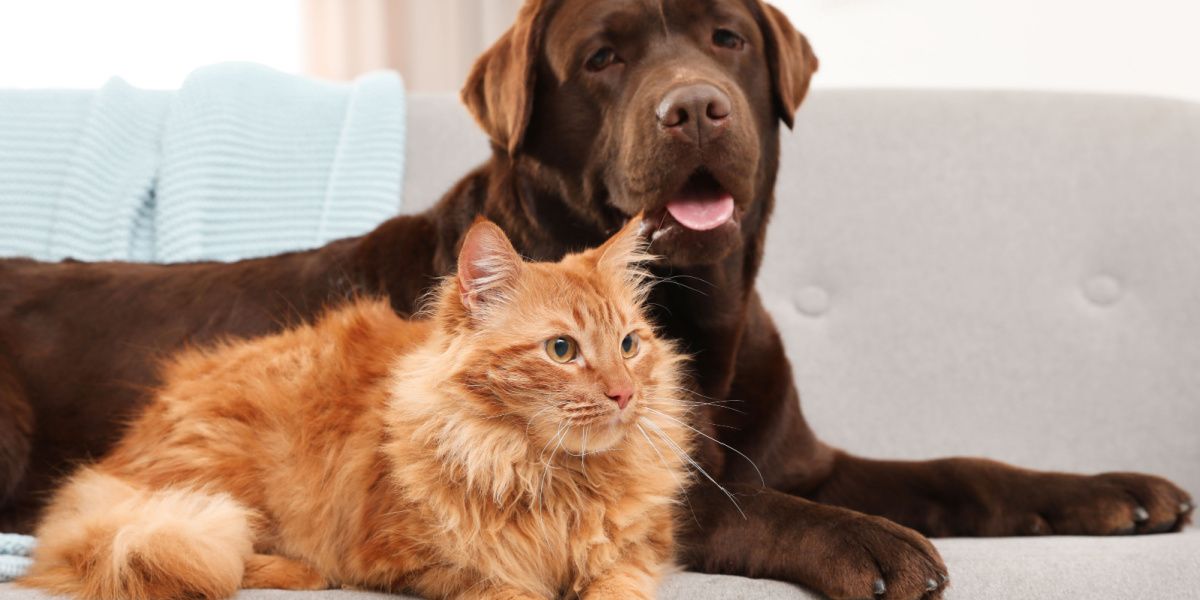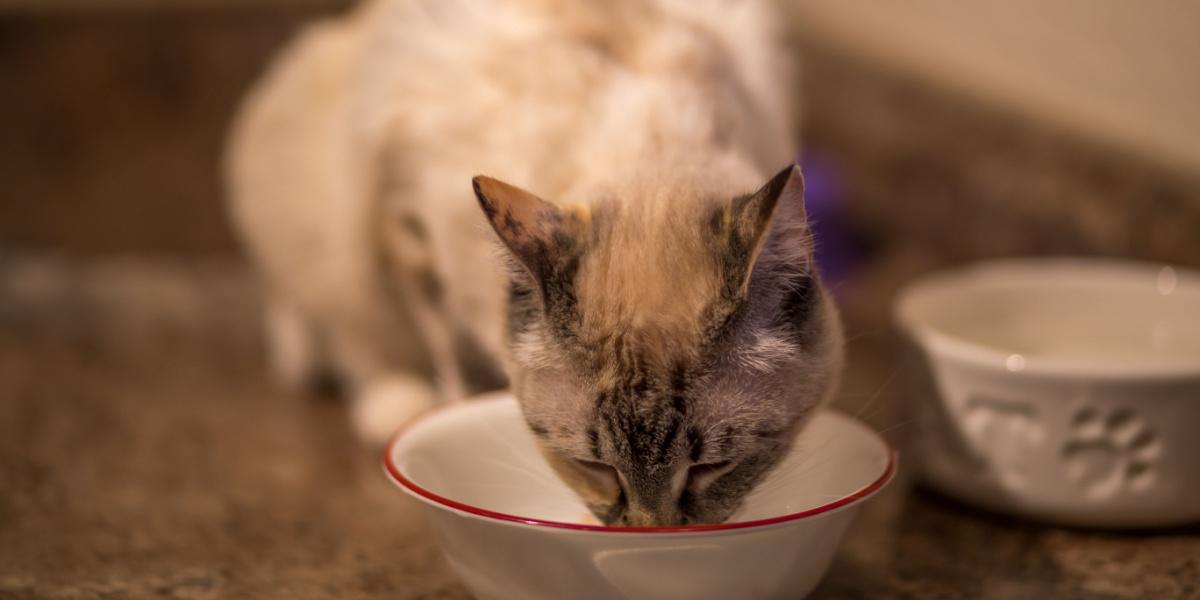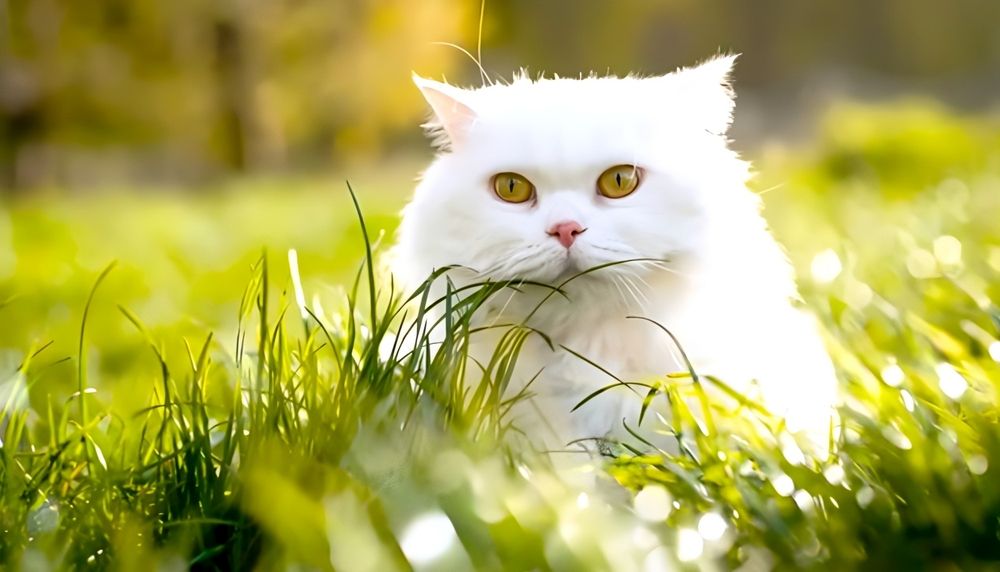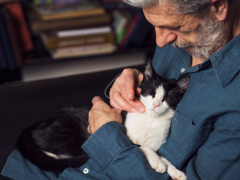
Thanks to domestication, both cats and dogs have been part of the family home for hundreds of years. Initially, the relationship between man and animal was mutually beneficial, whereas now, we keep pets for enjoyment and companionship. Throughout this time, it’s been noted that cats tend to live longer than dogs, even to this day.
So why is it that even with the best care a pet owner can give, cats still seem to stick around longer than their canine counterparts?
Key Takeaways
Cats live up to around 15-20 years - between 5-10 years longer than dogs.
There are evolutionary and man-made reasons for the difference in life expectancy, including breeding and behavior.
Healthcare for pets has advanced over the years, and is increasing both cat and dog lifespans.
What is the Difference in Life Expectancy?
On average, a cat will live between fifteen and twenty years, whereas the life expectancy of dogs is much shorter than a cat, usually around ten to twelve years. Some cats and dogs do live longer than the average, and when we investigate the record books, the oldest cat on record lived until 38 years of age, whereas the oldest dog on record lived to the ripe old age of 31.
Also Read:Â How Old Is My Cat In Human Years?
These numbers are impressive, but most cats and dogs tend to live within the average ranges. For many pet owners, this time is never enough, so a lot of thought goes into how to keep cats and dogs healthier and happier for longer.
We investigate the six possible reasons that cats live longer than dogs:
Cats Are Solitary Creatures
Cats tend to keep to themselves and live alone in the wild, avoiding predators and other animals alike unless hunting. This helps reduce their exposure to infectious diseases which could shorten or end their lives.
Dogs on the other hand are pack animals, so they are more likely to be exposed to infectious diseases, such as parvovirus, through close contact with others. If a dog has an infection, the chances of spreading it through the group are high.
Cats Are Better at Defending Themselves
A dog may look like the fiercer competitor in a fight with their impressive mouth of teeth, but the cat hands-down wins on defense. They have sharp claws and teeth to defend against predators. Their super skill lies in their agility, flexibility, and acceleration.
Cats can twist and turn to escape from danger, leap up high from a standstill, and can turn on a button. This agility and flexibility give the edge over competitors. The saying cats have nine lives derives from our recognition of how good cats are at escaping danger and near-death experiences!
Calorie Intake

Nutrition plays a vital role in health and longevity
A cat can survive on fewer calories compared to a dog, and so this allows them to survive in the wild when times get tough. As they live alone, a cat usually only has to think about feeding themselves whereas a dog usually lives in a pack and so has to share any food they find. Cats are also very good at conserving water, so can survive even when fresh water sources are scarce.
Cats do have a slight disadvantage to dogs though. A cat is an obligate carnivore, meaning it needs the proteins found in meat to survive. A dog is an omnivore, so it can eat a mixture of meats and plant substances to get by when food is scarce.
Selective Breeding
Dog breeding is a hugely popular hobby, with many different breeds and crossbreeds emerging and altering over the years. The problem is that not all these breeds are healthy, with specific physical traits such as curly tails being selectively bred over health. This is why we have such a variety in sizes and shapes of dogs, even though they all descend from one primary ancestor, the wolf. Sadly, some breeds have such severe health issues, such as the flat-faced pugs and bulldogs, which affect their lifespan significantly, even compared to other dog breeds.
Cats have also been affected by selective breeding, with breeds such as the Persian and Ragdoll generally living fewer years in total than other cat breeds, but, cat breeds have been less affected by health issues in comparison to dogs. They tend to be in a similar weight and size range even though physically they may have some differences. This may help them to live longer than dogs, but it is unproven as of yet.
Advances in Veterinary Care
Both cats and dogs are living longer than they used to because of the advances in veterinary health care available to them. Veterinarians are more focused on preventative care, supporting nutrition, and keeping pets’ immune systems healthy with regular vaccinations.
When a pet’s health is compromised, vets have a much more comprehensive range of medical treatments and more advanced diagnostics such as CT scanners to be able to work out the cause of illness and prolong their lives.
There is hope that as healthcare and nutrition advance, dogs may even catch up to cats’ lifespans, although the improved healthcare may let cats live even longer than they currently are.
Biology

Cats are extremely well adapted to live and thrive in their environments
This is an interesting thought process, as usually the larger an animal in the animal kingdom, the longer they tend to live. In dogs, the opposite is true. A giant breed dog such as a Great Dane or Bernese Mountain Dog has a very low average life expectancy, usually around 8 years.
In comparison, small breeds such as the Chilhuahua live the longest of dog breeds, and it’s not uncommon to get to 15-17 years old. We don’t know the exact reasons for this, but it’s thought that a large breed dog’s body ages much faster than a small breed dog’s, and this is why they do not live as long.
Whilst some cats and dogs do live in the wild, most now live in a domesticated setting so it is hoped we will continue to see prolongation of their lifespan in due time.
Also Read:Â 10 Cat Breeds That Live The Longest
FAQs
Do cats generally live longer than dogs?
Yes, cats often live for around 15-20 years, whereas a canine lifespan is more like 10-15. Dog lifespans vary greatly with their size and breed.
What makes cats live longer?
Many illnesses and diseases can't be predicted or avoided, but there are some general ways to try and maintain your cat's health. Nutrition, exercise, a suitable environment and preventative healthcare such as vaccinations are all important for longevity.
How old is the oldest cat?
The current record for the oldest cat stands at a very impressive 38 years!






